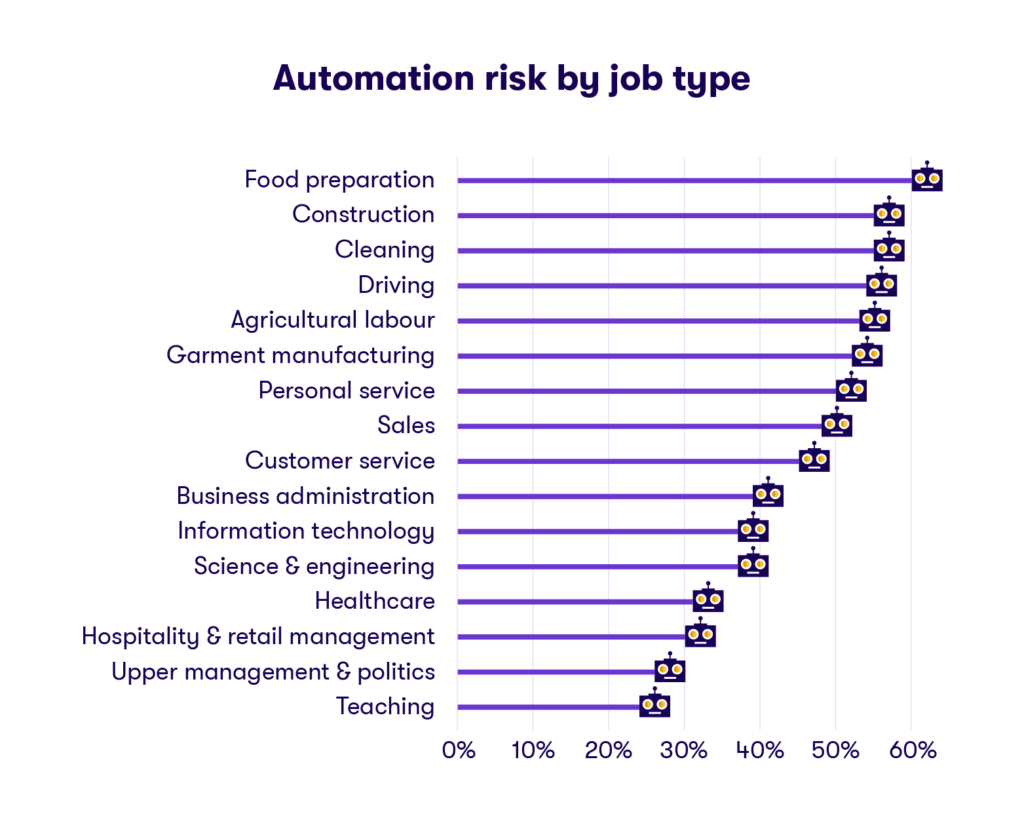Aug 21, 2018
Will Robots Take My Job?
Beep-beep, boop-boop, here’s the robo-employment scoop.

Past generations imagined a world in which robots did all of society’s dirty work. A world where androids would take out the garbage, cook our food, and mop up the bathrooms. You can get a glimpse of it in old TV shows like “The Jetsons”.
But some attitudes have shifted. It’s becoming clear that just because some jobs can be automated or handed off to robots, we don’t necessarily mean that we want them to be. People need those jobs, and every robot assembling parts on an assembly line or managing a cash register means there’s one less paycheck for a human being.
Robotics, automation, and artificial intelligence are making us more efficient and lowering the costs to produce some goods and services. So, while there are clear benefits to incorporating robotics into the worldwide economy, many people are still worried that their jobs could be automated and their career, as a result, redundant.
So, are those fears baseless? Or should you actually be worried?
Will robots take your job? What the experts say
U.S. jobs will be lost to automation—there’s no getting around it. Here’s a look at some telling statistics.
Only 26% of employers think they will lay off workers in favor of digital or robotic replacements, according to recent research from consulting firm Deloitte. And there’s likely to be large political battles waged by labor unions to try and keep certain jobs around.
A labor union representing 50,000 culinary and food service workers in Las Vegas, for example, recently brought up concerns about automation in their most recent round of negotiations, voicing concerns about automation’s potential impact on job numbers, as well as worker safety.
Evidently, humans aren’t willing to let their jobs slip into the hands of robots easily.
The jobs that are in danger
While the numbers from Deloitte may offer a small degree of relief for some workers, not everyone can rest easy. There are some jobs that are in clear danger of being automated.
A total of 210 million jobs in 32 different countries are at risk of being automated over the next 10-20 years, according to research from the OECD.
Workers in developing economies, such as Eastern Europe, are more at risk than U.S. workers. That’s because jobs in the former are generally less advanced and more easily automated than jobs in the latter.
Nevertheless, research also found that of more than 700 different jobs in the U.S., roughly half of them could be automated. As for which jobs are the most at risk, here’s a breakdown:

So, when it comes to the question as to whether or not a robot will take your job? It’ll likely depend on two key factors: What you do, and where you do it.
Want to invest in the future robo-workforce? You can invest in companies working in and around the robotics industry on Stash.














